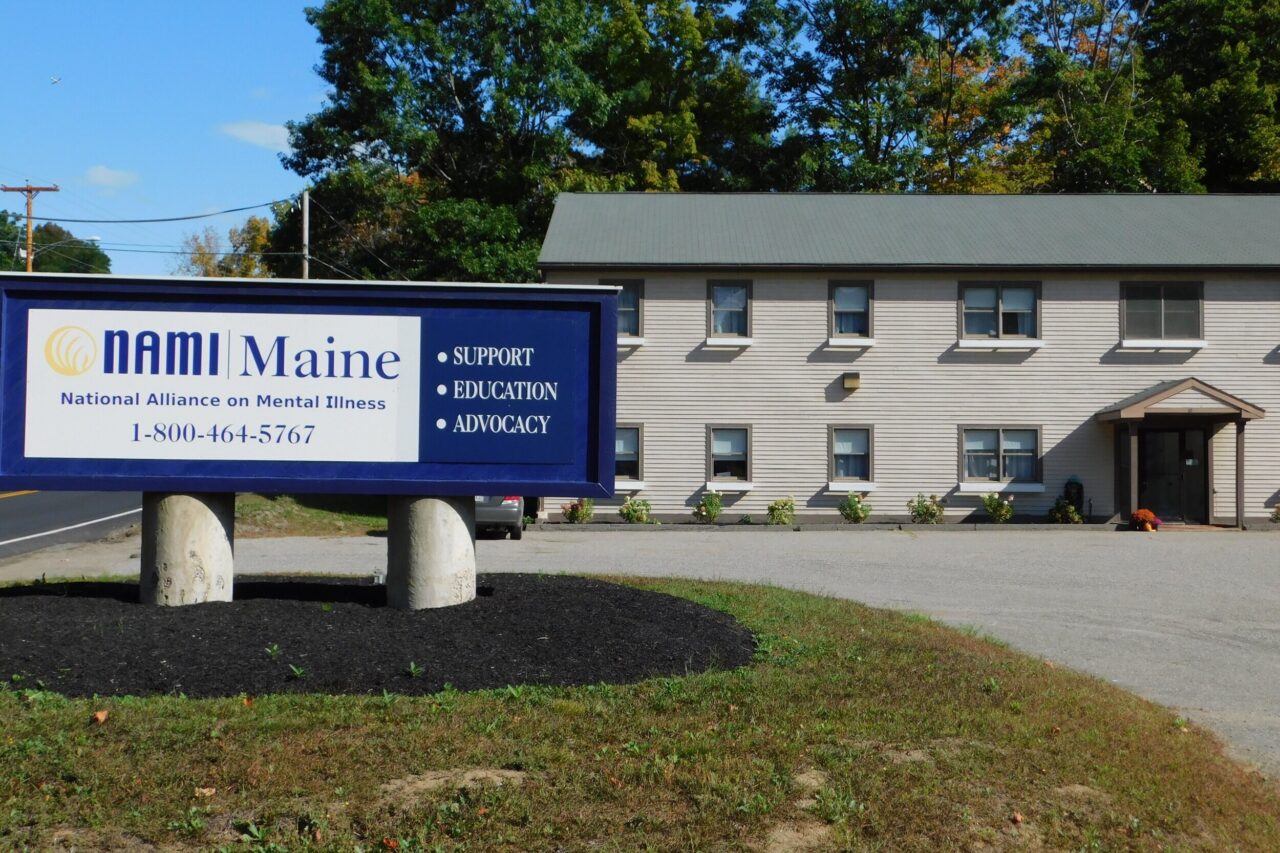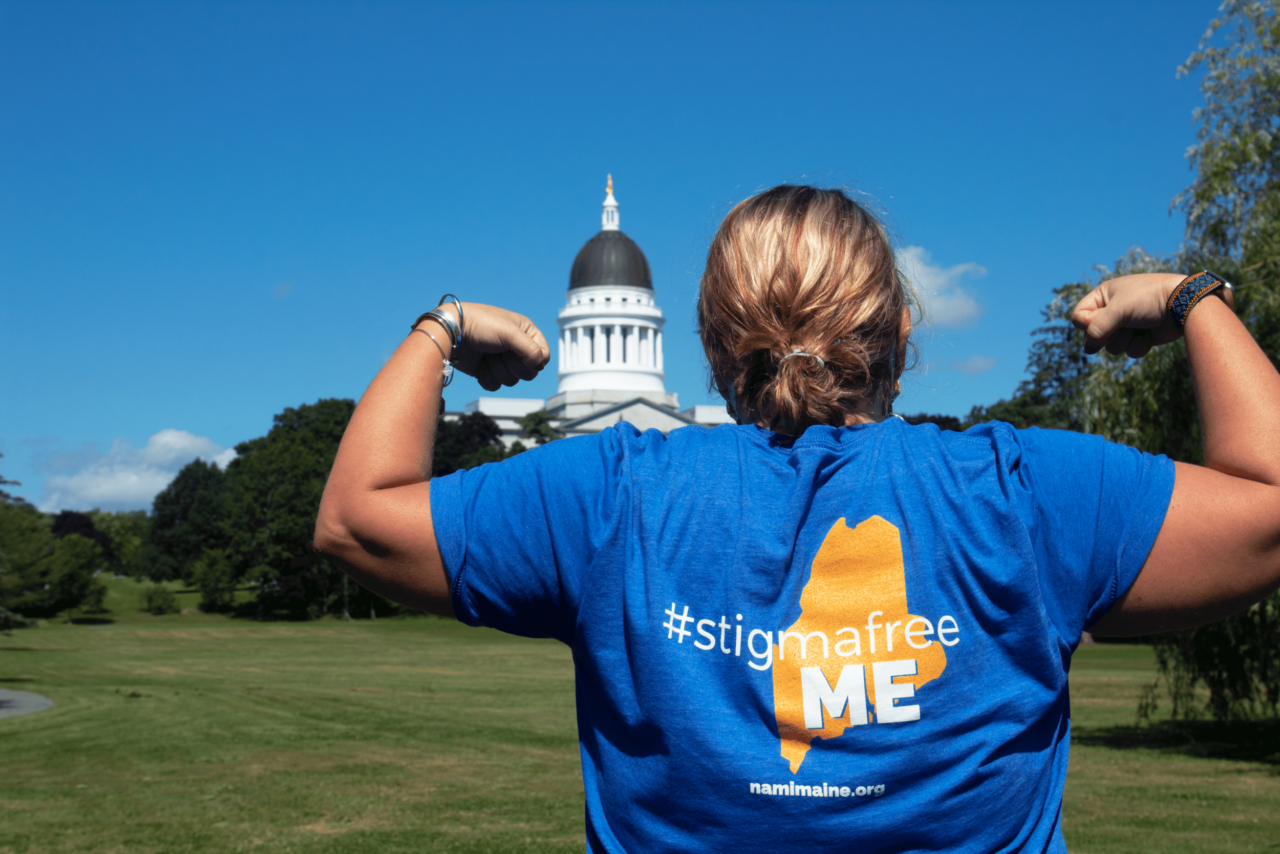In Maine Schools


Maine school districts are required by law to maintain training on suicide prevention and intervention.
- All school personnel must complete a 1-2 hour suicide prevention training within 6 months of hire that must be renewed every 5 years.
- This includes anyone who receives a paycheck as a regular staff member. Remember to include staff such as custodians, bus drivers, cafeteria workers, and coaches.
- A district must have a minimum of 2 staff who have received a full-day training on suicide prevention and intervention beyond the basic level noted above, which must be renewed every 5 years.
- Districts with more than 1,000 students must have an additional trained staff member for every additional 500 students.
- The recommendation is one trained staff member per building in the district.
- This training is commonly referred to as the “Gatekeeper Training”.
- Every district must develop and maintain protocols addressing suicide prevention, intervention, and postvention (after a suicide loss).
- Protocols should be readily available for all staff to know what steps to take and who to work with for intervention after identifying a student at risk of suicide.
For more information regarding how NAMI Maine can support your school in meeting these requirements, email mspp@namimaine.org or call 800-464-5767 x2318.
**Reference Links**

Training Available for All School Staff:
1) Suicide Prevention Awareness Session
This 1–2-hour introductory training covers basic information about suicide; when and how to ask someone if they’re thinking about suicide; and resources for help. This session satisfies the state requirement for all school personnel to have suicide awareness training.

Gatekeeper Training
Expanding on the fundamentals of suicide prevention as explored in the Suicide Prevention Awareness Session, this full-day training includes information on responsibilities and required actions when a person is identified as being at risk of suicide, including basic assessment and management of a suicidal crisis, safety planning, and what to do in the event of a loss.
This session satisfies the state requirement for staff members to receive full-day training on suicide prevention and intervention.
This training will provide:
-
The fundamentals of suicide prevention
-
The stigma of suicide and how to hold the conversation
-
Up-to-date information about suicide
-
Basic suicide intervention skills
-
Personal confidence and the ability to effectively respond to suicidal behavior
-
Helpful resources for intervention and in the aftermath of a suicide

For Gatekeeper Trained School Staff:

1) Suicide Prevention Training of the Trainer (TOT)
This half-day interactive session develops the skills for a school’s Gatekeeper to deliver the required Suicide Prevention Awareness Session within the school district and to other community members, as desired. All necessary materials for facilitating the Awareness Session are provided as part of this course.

2) Suicide Prevention Advanced Gatekeeper Training
Designed to fulfill the 5-year recertification requirement for full-day suicide prevention training, this course expands upon the foundational topics and skills learned in the Gatekeeper Training.

School Clinical Staff
1) Suicide Assessment and Management Training
This full-day training focuses on assessment of suicidality from a clinical perspective. Topics include an in-depth focus on risk factors, the components of suicidal ideation, and collaborative safety planning. Protocols are emphasized as an important guiding factor in developing and implementing a comprehensive prevention, intervention, and postvention (after a loss) response. This training fulfills the 5-years recertification requirement for full-day suicide prevention training.
2) Collaborative Safety Planning Training
A collaborative safety plan can assist an individual and their supports in navigating a crisis, mitigating the risk of further escalation. In this half-day training, you’ll learn how to work with an individual to create a plan addressing their personal coping skills, interpersonal supports, and professional resources.
3) Non-Suicidal Self-Injury (NSSI) Training
This half-day training examines the complex relationship between non-suicidal self-injury and suicidal risk in youth. It explores the key differences between non-suicidal self-injury and suicidal behavior, addresses assessment and management of self-injury, and provides resources to support protocol development.

School Protocol Development
When a student or staff member is considering suicide, attempts suicide, or dies by suicide, clear and comprehensive protocols are critical for providing direction, structure, and support. Having a plan to address the needs of all involved (which can include administrators, clinicians, teachers, other school staff, students, and parents) is necessary.
Recognizing the crucial role protocols play in suicide prevention, intervention, and postvention (after a loss), the NAMI Maine Suicide Prevention team offers resources to aid in development of protocols as well as direct one-on-one guidance with your team to assist in overcoming questions, challenges, and barriers during the protocol development process.
For guidance and resources, please email mspp@namimaine.org or call 800-464-5767 x2318.
Additional Resources for Developing your School Protocols:


Prerequisite: Completion of Suicide Prevention Gatekeeper Training
Curriculum Training for Teachers
Learn How to Teach Youth about Suicide Prevention. This full-day program is for health educators and other school professionals who will implement Student Suicide Prevention lessons in their school health curriculum. These lessons are aligned with Maine Learning Results-Health Education Standards and are part of a research-based, field-tested program, which has been evaluated in Maine. The overarching goal of the lessons is to provide students with the knowledge and the rationale for them acting in support of suicide prevention and intervention with their peers AND to support them reaching out to a responsible adult in times of need. Courses are available for both high school and middle school staff. This training is supported through use of the copyrighted Lifelines Suicide Prevention Manual for Schools which also includes material for presenting in 5-6th grade.
-
The Middle School Lessons for Suicide Prevention are developed for delivery within grades 5 – 8 and include mental health, stress and coping strategies as well as suicide awareness. Students will learn the positive and negative aspects of life stress, the basics of mental health and mental illness, coping strategies, and suicide prevention.
-
The Lifelines Program is designed to be delivered within grades 7 – 10 and offers basic suicide awareness and how to access help through caring adults. It builds on the lessons of the Middle School Lessons, but can be offered as a stand-alone curriculum.
Who Should Attend?
-
School health teachers
-
School administrators
-
School-based clinicians
-
Behavioral health staff

COLLABORATIVE SAFETY PLANNING
In a School Setting
Best practice recommendations for addressing and managing suicide risk include use of a good assessment tool for determining risk and guiding intervention. A vital next step is the collaborative development and use of a Safety Plan to help an individual to manage themselves during and following periods of crisis. A Safety Plan is a tool and a process for working with a student (and family) to identify and increase the use of coping skills, social and family support and professional resources. It is often used with people at increased risk for suicide, but is an excellent tool for use with anyone at risk for escalating crisis. This session will provide the tools and process for implementing safety planning for supporting students at risk in Maine schools.
Prerequisite: Completion of Suicide Prevention Gatekeeper Training or Suicide Assessment for Clinicians

For Schools & Organizations
Where a Suicide Loss Has Been Experienced
The sudden traumatic loss of a student or a well-known staff member can have a devastating impact on the school community; students, staff and parents. The risk for contagion is a real focus in the aftermath as other students can be deeply affected and act upon their distress. NAMI Maine Suicide Prevention staff are available to work closely with the school and community resources to provide guidance, resources and support during the critical first days and weeks following a loss. In spite of planning and protocols, a student suicide leaves school staff shaken; we seek to connect with school administration and/or clinical staff immediately following the loss to offer our experience and resources.
Postvention services offered to schools:
-
Consultation and guidance on supporting your school
-
Connection to resources to support your efforts
-
Referrals to supports in your region
-
Debriefing support for school staff and clinicians
-
A Suicide Loss and Prevention Session for parents and the community
Resources for support:

Reach Out:
Call (800) 464-5767 x2318 or Email MSPP@namimaine.org









